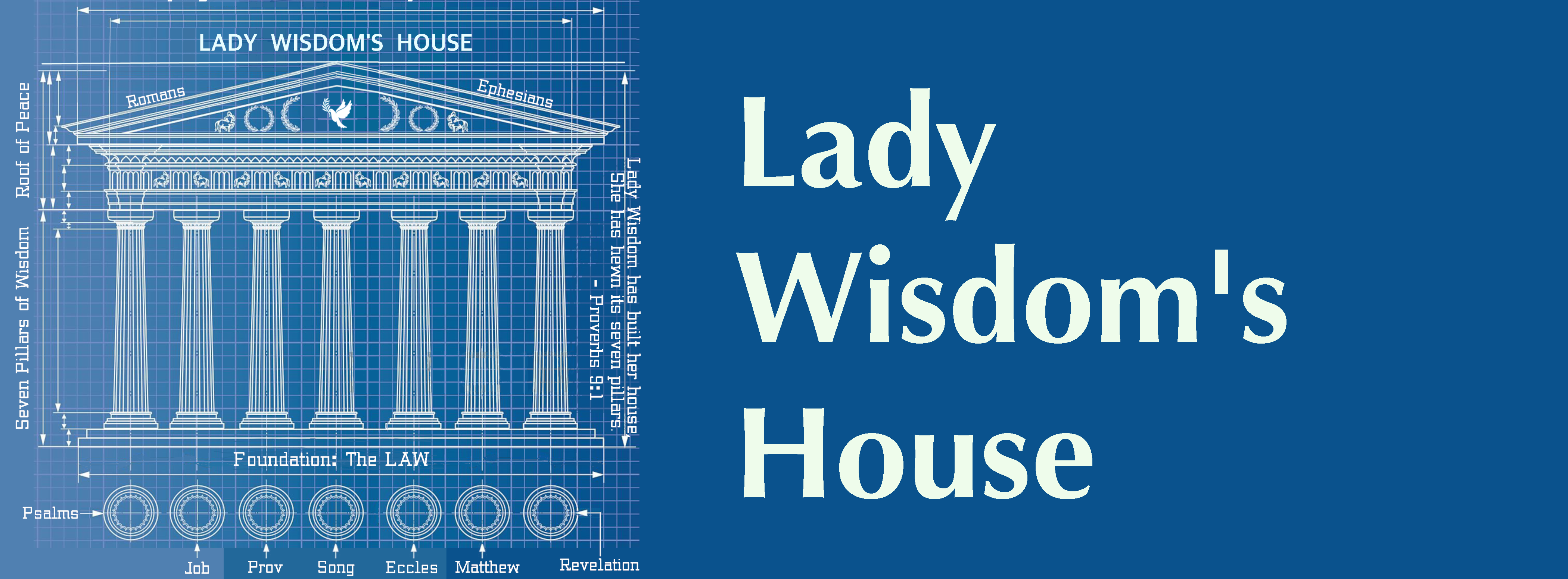5 is for Grace
949 words long.
Published on 2024-03-03

The number five is the reason I wrote the practical sections of Peace, like Solomon Never Knew. Opinion on the web is that five has to do with grace. Agreed, but is there more to grace’s “five-ness” than that? There is. First I saw it in Job. Then I saw it in Jesus’ temptation in the desert. Then in his parable of the soils. Then I searched my heart and life and five was present everywhere the Lord was at work, in all the teaching, healing, and miracles he did. This week, to make sure I wasn’t overreaching, I dove into Numbers and Deuteronomy to see if the five books of the Pentateuch correspond – in order – to the five distinct steps God takes as He applies that grace to a believer’s soul.
According to Dr. Stephen E. Jones, they do. In The Biblical Meaning of Numbers from One to Forty:
To bring grace in the Old Testament there were five offerings (Lev. 1-3): Burnt Offering, Sin Offering, Meal Offering, Trespass Offering, and Peace Offering, each representing a different aspect of Christ’s sacrifice of Himself in the New Testament.
In the chapter “Four Months til Harvest” of Peace, like Solomon Never Knew it is shown how these five offerings correspond, in the order given in Leviticus 7:37, to a five-fold path to peace. (I would later expand this to a seven-fold path. The first and sixth steps are absent from some passages, making the the full seven steps into five.) The Levitical sequence differs from Dr. Jones’ order, and is:
- Burnt Offering
- Meal (or grain) Offering,
- Sin (or purification) Offering,
- Guilt (trespass or reparation) Offering, and
- Peace Offering.
The correspondence to the sevenfold Harvest pattern is:
- Preparation: No corresponding sacrifice. Instead this is the preparation for those sacrifices.
- Plowing: The plowing phase is suffering, and in Job his trials began while the oxen were plowing a field. The burnt offering consumes the whole animal, which is often an ox.
- Planting: What is planted is the seed of the gospel. Seeds are of grain, so this matches the grain offering.
- Pouring: Just as water is poured upon the fields to make the plants grow, whether by rain or irrigation, so the Holy Spirit is poured upon the believer to make their spirit grow. Since the purification offering is about, well, purification, it is a good fit to water and the Holy Spirit.
- Plucking: The Guilt Offering is a fit match to the father's plucking, pruning and guiding of the believer toward new habits and new priorities.
- Producing: This matches a less common offering, used to dedicate people to temple service.
- Peace: The Peace offering is on the nose. The experience of peace at the end of the harvest is the full receipt of God's grace.
Another place where “five” figures prominently is Psalms, divided into five sections. Space does not permit us to take up the pattern of the Psalms, but they, too, mirror the five-fold path.
Not only in rituals, but in the lives of the righteous does this number appear. Consider another discovery shared by Dr. Jones, concerning Noah, Ruth and David:
But Noah found favor in the eyes of the Lord.
- Genesis 6:8, ESV
And Ruth the Moabite said to Naomi,
“Let me go to the field and glean
among the ears of grain after him
in whose sight I shall find favor.”
And she said to her,
“Go, my daughter.”
- Ruth 2:2, ESV
And Saul sent to Jesse, saying,
“Let David remain in my service,
for he has found favor in my sight.”
- 1 Samuel 16:22, ESV
- The verse from Genesis is the fifth time Noah’s name appears in Scripture.
- The verse from Ruth is the fifth time her name appears in Scripture.
- Then the last verse is the fifth time in 1 Samuel that David’s name is mentioned.
Thus the experience of favor (or grace) is again paired with the number five.
(If you decide to check the above observation for accuracy, you will encounter difficulty. Previous mentions of David were editorial comments added later, such as David’s place in Ruth’s family tree. As for the other counts, they are evident in the Hebrew version but not all English translations. In such translations, one instance of Noah’s name is replaced with the pronoun he, and one instance of the pronoun she is replaced by Ruth. This is another case where choice of translation can erase patterns. It is especially important to check numerological patterns against the original language; they are easily lost or damaged by the act of translation. Despite the accuracy of Jones’ statements, the above pattern is still suspect. If you bring other Biblical figures of whom it is said they found favor, you have Daniel - after the fourth mention of his name - and Esther - after the sixth mention of hers. He may have discovered an accidental pattern.)
Where the number five is found, conflict ensues. On the fifth day of creation, God created the birds and the sea creatures. The Holy Spirit is often depicted as a dove, and Leviathan, the sea serpent, as the devil’s minion waging war against our soul. God’s grace is carried to us by the Spirit amid that great battle.
List of articles in this section:

